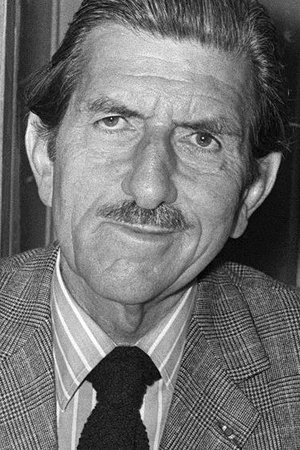Jacques Massu (1908-2002)
Birthplace:
Châlons-sur-Marne, Marne, France [now Châlons-en-Champagne]
Born:
May 5, 1908
Died:
October 26, 2002
Jacques Émile Massu (5 May 1908 – 26 October 2002) was a French general who fought in World War II, the First Indochina War, the Algerian War and the Suez crisis. He led French troops in the Battle of Algiers, first supporting and later denouncing their use of torture. Jacques Massu was born in Châlons-sur-Marne to a family of military officers; his father was an artillery officer. He studied successively at Saint-Louis de Gonzague in Paris, the Free College of Gien (1919–1925) and Prytanée National Militaire (1926–1928). He then entered Saint-Cyr and graduated in 1930 as a second lieutenant in the promotion class "Marshal Foch" and chose the Colonial Infantry. Between October, 1930 and August, 1931, he served in the 16th Senegalese Tirailleur Regiment (16th RTS) in Cahors. He was sent to Morocco with the 5th RTS and took part in the fighting around Tafilalt where he earned his first citation. He was promoted to lieutenant in October 1932 and took part in the operations in High Atlas, earning a new citation. In 1934 Massu was transferred to 12th RTS at Saintes, Charente-Maritime. He served in Togo from January 1935 to February 1937 performing military and civilian duties in Komkombas. Then he was stationed in Lorraine with the 41st RMIC until June 1938, when he was sent to Chad to command the subdivision of Tibesti with headquarters in Zouar. He was serving in Africa when World War II broke out, and joined the Free French Forces. He took part in the battle of Fezzan with the armoured troops of General Leclerc. In 1941, he was in charge of the bataillon de marche du Tchad. He served as a lieutenant-colonel in the 2nd Armored Division (2e DB) serving with distinction at the Battle of Dompaire in September 1944 earning the US Silver star. He served with the division until the end of the war. In September 1945, he landed in Saigon and took part in the retaking of the city and of the South of Indochina. Massu took command of a mechanized infantry force of the 2e DB named Groupement Massu, comprising a reconnaissance squadron with M8 Greyhound armoured cars from 7e Escadron, 1er Régiment de Marche de Spahis Marocains; a squadron of M5A1 Stuart light tanks of 1e Compagnie, 501e Régiment de chars de combat; a provisional infantry force of the 4e Bataillon, Régiment de marche du Tchad and the French Navy’s Régiment Blindé de Fusiliers-Marins, with M3 Half-tracks; and engineer elements of the 71er Bataillon du Génie. This force was landed at Saigon between 10 and 15 October 1945, and was immediately deployed to recapture Mỹ Tho in the Mekong Delta from the Viet Minh. In 1956, the 10th Parachute Division was sent to Egypt to take back the Suez canal during the Suez crisis. The 10th Parachute Division landed at Raswa. Raswa imposed the problem of a small drop zone surrounded by water, but Massu assured Andre Beaufre that this was not an insolvable problem for his men. 500 heavily armed paratroopers of the French 2nd Colonial Parachute Regiment (2ème RPC), hastily redeployed from combat in Algeria, jumped over the al-Raswa bridges from Nord Noratlas 2501 transports of the Escadrille de Transport (ET) 1/61 and ET 3/61, together with some combat engineers of the Guards Independent Parachute Company. ... Source: Article "Jacques Massu" from Wikipedia in English, licensed under CC-BY-SA 3.0.





